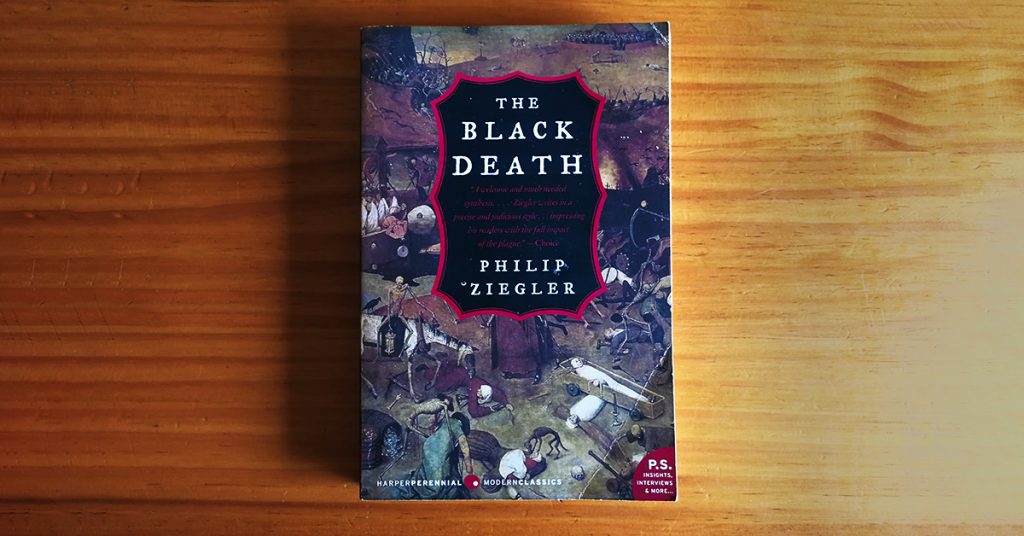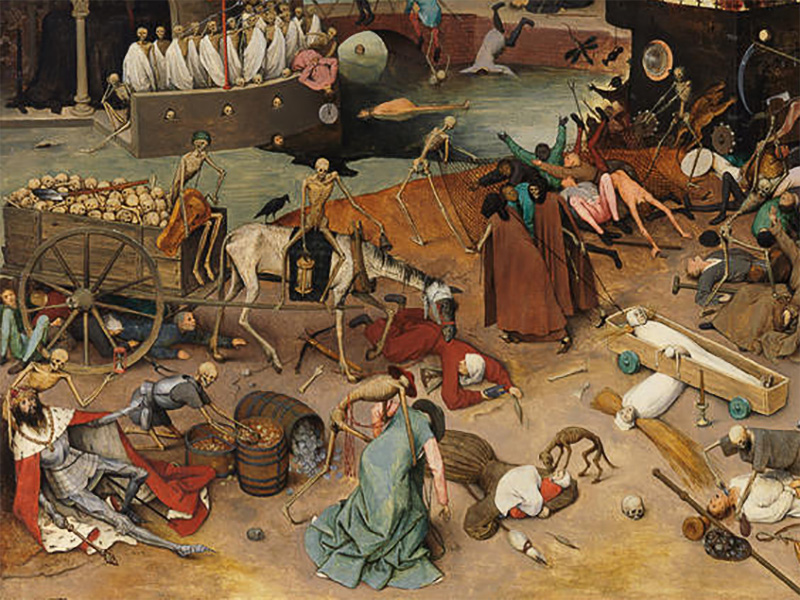
I read books for one simple reason – to stay sane in a world that has clearly lost its mind.
Sanity is in short supply now. Media outlets and government officials appear determined to keep people frightened of a disease with an Infection Fatality Rate (IFR) of 2%. In other words, your chance of survival is high if you contract it. In a sane society, this knowledge should bring a sense of relief.
The Black Death by Philip Ziegler inoculated me against the rampant anxiety in society by providing my mind with an essential mental nutrient – a sense of perspective.
Imagine living in a time where you were confronted daily with death because one in every three people you knew died horribly. This was the awful reality the people of Europe had to face in the mid-14th century.
The epidemic known as the Black Death killed one-third of the continent’s population over a period of three years. This plague of “unparalleled fury” visited death on almost every single family. Men, women, the young, and the old perished like dry kindling exposed to a raging fire.

Before the Black Death took your life, it took your dignity. First (but not always), buboes – swollen, inflamed lymph nodes in your armpit or groin – would appear. Your death “was likely to come in five or six days”. You might also be afflicted with an additional symptom, coughing blood. If this was the case, death would likely arrive “within two or three days”.
Everything about it [the Black Death] was disgusting, so that the sick became objects more of detestation than of pity: ‘…all the matter which exuded from their bodies let off an unbearable stench; sweat, excrement, spittle, breath, so foetid as to be overpowering; urine turbid, thick, black or red…’
Ziegler, 1969
Try to imagine the terror of this situation as it struck down your family, friends, acquaintances, or yourself. Our current climate of fear loses its seductive power after you immerse yourself in 300 highly readable pages about the Black Death.
While Philip Ziegler’s book provided me with a much needed (yet grisly) sense of perspective, it also covers an aspect of the epidemic which troubles me in 2021. When people are fearful, they look for someone to blame for their woes. Their fear incites them to persecute and kill their chosen object of blame.
Jewish people living in Europe during the Black Death became targets of persecution, possibly because they were more health conscious than their Gentile neighbours. The habit of Jewish people to draw their water from open streams rather than wells (which were polluted by sewage seepage) in built-up areas attracted paranoid suspicion and gave birth to a demented logic.
“Why should the Jews shun the wells unless they knew them to be poisoned and how could they have such knowledge unless they had done the poisoning themselves?” People thought the Jews were responsible for the spread of the Black Death by intentionally poisoning communal water sources.
This erroneous and bigoted belief resulted in numerous massacres of Jewish communities across Europe during the plague. The slaughter of Jewish people took place while the plague raged in a city and sometimes it took place ‘pre-emptively’ before the plague hit an area.
Rats and fleas were the likely vectors for the Black Death, not a group of people the general populace chose to blame due to fear, bigotry, and misinformation. You would have to be wilfully blind to not see a similar attitude present in the world today. The [insert object of irrational hatred] are to blame for our problems.
I recommend The Black Death by Philip Ziegler if you want to shore up your sanity in our fear soaked times by maintaining a sense of perspective.
However, this book also reminded me of one of humankind’s nasty habits:
The desire to blame the blameless in times of trouble.
Perhaps that dose of reality will also protect me.

Thanks for the perspective Tim, good article 👍
Thank you, Piers. Glad it resonated with you.